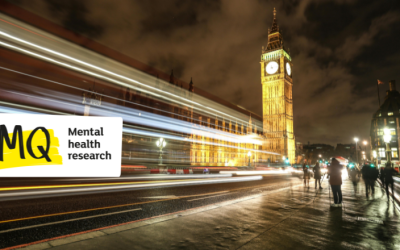A recent article published by the MQ-supported PHOSP-COVID group has outlined the ten key research questions regarding the effects of Long-Covid.
The PHOSP-COVID study, led by the National Institute for Health Research, assessed over 2000 patients adults across the UK hospitalised with COVID-19. As a result, the team identified the top ten research priority questions for survivors of the illness who were admitted in hospital:
- What are the underlying mechanisms of Long-COVID that drive symptoms and/or organ impairment?
- What imaging techniques or scans may be able to detect and predict the development of organ problems or wider systemic issues?
- What happens to the immune system throughout patients’ recovery from COVID-19?
- What can data at 6 and 12 months tell us about the long-term trajectory of the illness?
- What blood or other laboratory tests may be able to detect and predict the development of organ problems or wider systemic issues?
- What is the impact of treatment(s) during the initial stage of COVID-19 on recovery?
- What are the problems within the muscles associated with symptoms limiting activity/function/exercise? If so, what can be done to help?
- What medications, dietary changes, supplements, rehabilitation and therapies aid recovery?
- What can be done to support mental well-being during recovery?
- What is the risk of future adverse health events (e.g., stroke, heart attack)?
Patients, patient charities, and carers were closely involved in generating and prioritising the questions. It differs from previous reports published earlier in the pandemic, which were primarily informed by clinician input.
MQ’s CEO, Lea Milligan, had this to say,
"Seeing research guided by the people it is there to serve is at the heart of MQ's strategy; it's an essential part of putting research to, driving change and transforming lives. The PHOSP group's ability to adapt and deliver such an excellent lived experience process and patient engagement during the pandemic is a perfect example for other research projects to learn from."
There is a range of symptoms that people with Long-COVID experience, which can all vary in severity. These symptoms include extreme tiredness, shortness of breath, changes in taste and smell, chronic pain and problems with memory and concentration, referred to as ‘brain fog’.
Brain fog isn’t a scientific term but more a description of how it feels when thinking is slowed, memory is ‘fuzzy’, and it is difficult to concentrate on anything.
According to the ONS figures on Long-COVID published in January, in a survey of over 1.3 million people in the UK, 28% had difficulty concentrating, and 20% said their ability to undertake day to day activities had been ‘limited a lot’.
Thanks to a generous grant from the Wolfson Foundation, MQ will be building on the success and learnings of the PHOSP COVID and COVID CNS studies, which we have been supporting for the last two years, by developing a study with the intention to provide new solutions for people experiencing Long-COVID and more specifically ‘brain fog’.
This new study aims to identify the specific cognitive deficits underlying Long-COVID induced brain fog, identify the mechanisms in the brain that cause the impairments, and develop and test interventions.
You can read more about our study into ‘brain fog’ here.



